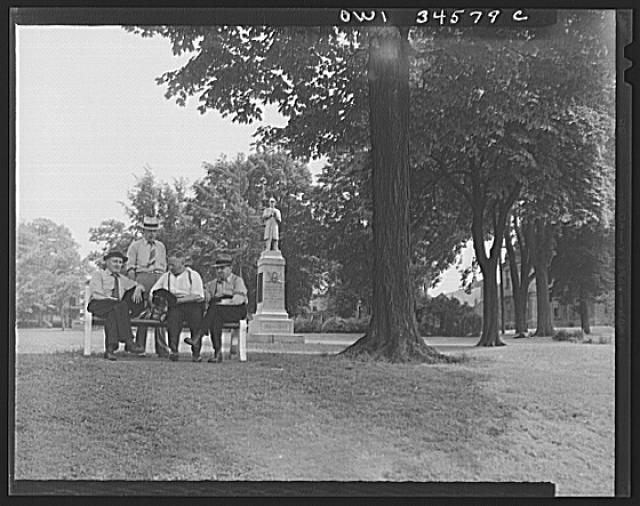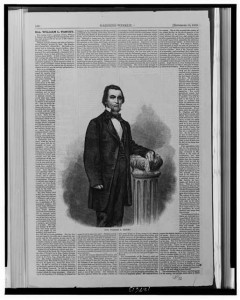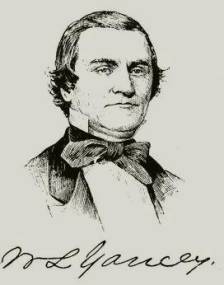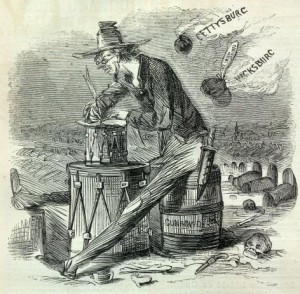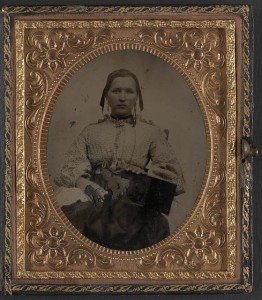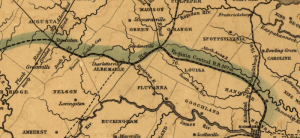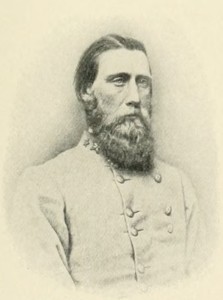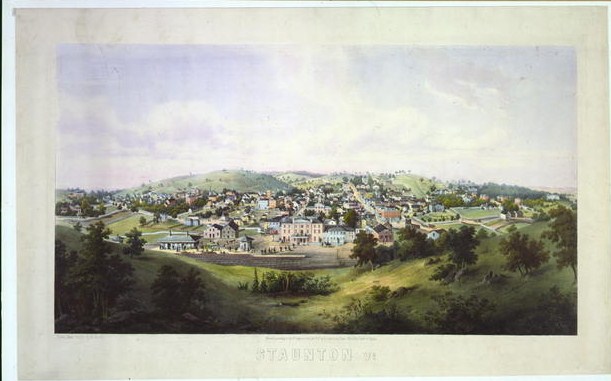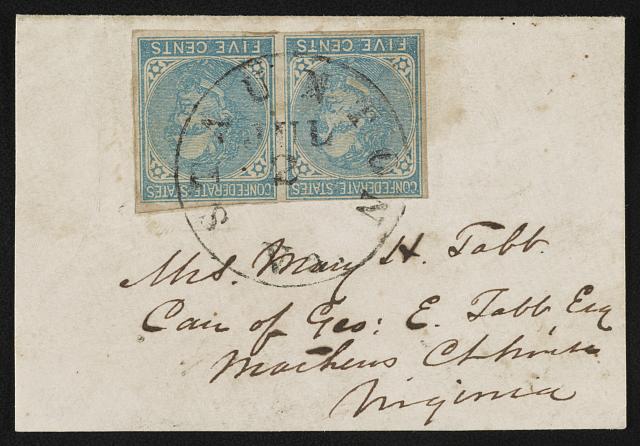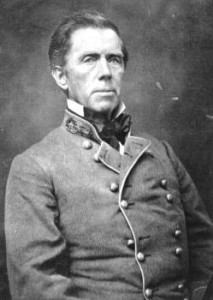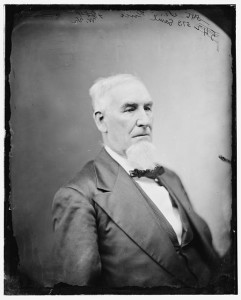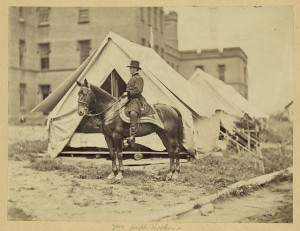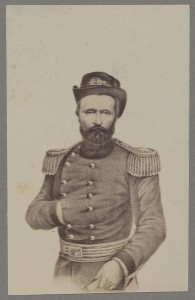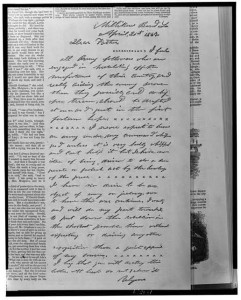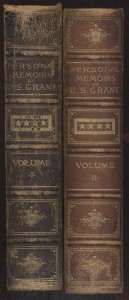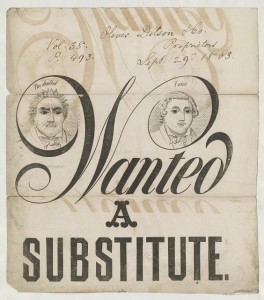I forgot that President Lincoln had designated August 6th as a Day of Thanksgiving. Here’s an editorial that sees a direct link between the April 30th National Fast Day and the recent Union successes. July 4, 1863 was a lot like the deaths of Jefferson and Adams on the same day exactly 50 years after the Declaration – proof that God cared about the fate of the United States.
From The New-York Times August 6, 1863:
The National Thanksgiving.
Every loyal American who believes in a superintending Providence — and nobody but an idiot can doubt it in times like these — must recognize the propriety of the Thanksgiving appointed by the President, to be rendered this day. There never was a more urgent occasion for a national manifestation of gratitude to Heaven.
It was the 30th day of April last that was observed with great solemnity as a National Fast. Throughout every loyal city and town and hamlet of the North, invocation was made to Heaven for safe deliverance from the dread crisis which all felt had come. The future historian will unquestionably designate that as the very darkest period of the struggle. All the gigantic efforts which had been for months kept up for the reopening of the Mississippi by the capture of Vicksburgh had failed utterly, and to all appearance there was no further resource. The army of ROSECRANS, after the terrible and indecisive fight at Murfreesboro, had remained inactive for more than four months, confronted by its adversary in a position seemingly impregnable to all attack. All the high hopes that had been formed of the irresistible power of the Monitors had just been dashed by their utter and absolute failure in their attack upon Charleston. In the first week of May, the Army of the Potomac, under Gen. HOOKER, was hurled back with terrible slaughter from a new attempt to march upon Richmond, upon the success of which the nation had seemed to stake its last hopes. In all our important operations every where we were baffled, and apparently brought to a dead stand. The time was close at hand when the armies were to be decimated by the expiration of enlistments, with no prospect of making good the loss. And what was even more alarming than all, the North was fast becoming fatally divided. Weak men were everywhere exclaiming that Heaven had deserted the cause; and false men, with a skill it seemed impossible to thwart, were perfecting their plans and their organizations for forcing upon the Government submission to the rebels. The nation was then in its lowermost depth of humiliation — exulted over by its enemies, scorned by strangers, and weighed down with a sense of helplessness that amounted almost to despair. Well might the nation cry out, as it then did in its anguish, to Heaven for deliverance.
Three months have passed, and what a change! Loyal men everywhere are elate. Rebels are filled with consternation. The foreigners who flouted at us are now in speechless confusion. Success after success has waited upon the Republic in almost unbroken succession. In very truth, it would be difficult to find in military annals anywhere such a contrast as that between the course of events for the last three months and that which had before prevailed. Everything, great and small, seems to have conspired to restore the cause of the Republic. Two events particularly loom up as of surpassing moment — the capture of Vicksburgh, and the discomfiture of LEE’s last and mightiest attempt upon Washington. It was on Fast day that GRANT landed the advance of his army on the eastern side of the Mississippi below Vicksburgh. His capture of Grand Gulf, his march inland away from the base of supplies, his uninterrupted victories until three weeks afterward he brought up his army in the rear of the rebel stronghold, and the siege which followed, will always stand as remarkable in military history. And then the fact that the final capitulation was made on the nation’s birthday, however coldly we may reason about it, cannot but make its own peculiar impression. By every religious mind, the deaths of ADAMS and JEFFERSON on the National anniversary, just one half century after the Declaration which gave birth to our nation, and of which they were the two moving spirits, has always been recognized almost as a visible manifestation of God’s presence in the affairs of the young Republic. The simultaneous departure of two such men on such an epoch to the world of spirits, could hardly be taken by even the grossest materialist as anything less than a Providential ordering. And yet, after all, the nation’s birthday was not more signally illustrated by that event than by the surrender on the same anniversary of the master-key of that great rebellion which, to all human appearance, was destined to prove the destruction of the Republic. When Vicksburgh was given up, the Confederacy, in its defensive relations, was ruined. It its aggressive capacity, its fate was concurrently scaled. LEE’s Northern invasion, it is now fully understood, had the capture of Washington as its prime object, and that of Baltimore and Philadelphia as an ulterior purpose. He and his entire army had the utmost confidence of success; and, in fact, he came far nearer succeeding than is generally imagined. Nothing but what NAPIER in his great military history calls “Fortune, that name for the unknown combination’s of Infinite Power,” saved us from being out-generated and overwhelmed in that awful week. This will be better understood some day when the full history of that marvelous campaign comes to be written. Had LEE succeeded in his plans, framed with such consummate skill, and backed up with an army of almost matchless prowess, it is difficult to see how it would not have made him complete master of the East, and have impelled the foreign Powers to recognize the Confederacy, for which they have been so long seeking a decent occasion. But thanks to Providence, LEE did not succeed. The morning sun of the Fourth found him beaten and confounded, and turning his steps backwards. These steps could never be retraced. From that time there was as complete an end to the aggressive power of the rebellion as was given to its defensive power by the great event on the Mississippi. The fate of the rebellion, in every mode of action, was sealed. It could thenceforward sustain but a languishing and spasmodic existence. The only question concerning it since has been the time of its death.
We might mention, in addition to these two great decisive triumphs, the minor advantages which have been gained — the defeat at Helena, by a greatly inferior force, of the army which sought to save and fortify that point, to prevent further supplies to GRANT — the reduction of Port Hudson, the last rebel foothold on the Mississippi — the outmanoeuvring and bloodless forcing of BRAGG’s army out of Tennessee — the opportune destruction of the great rebel iron-clad Atlanta, which threatened terrible damage to our blockade — the capture of MORGAN’s force, which had been the scourge of the West — the brilliant cavalry victories, which have made that arm a power for the National cause hardly before dreamed of; — all these would have figured gloriously had they not been overshadowed by the other colossal successes. There has been in fact scarcely a reverse, small or great, to mar the bright picture. Even the assault upon Fort Wagner was virtually but the failure of the day. It did not seriously interrupt the operations upon Charleston, and the early capture of that stronghold was never — all things considered — so likely as now. We stand vastly better there to-day than three months ago, after DUPONT’s repulse.
We might also advert to the discomfiture of the desperate schemes to excite resistance to the laws and civil war here in the North, and to the disposition, everywhere reviving, to stand by the Government in all needful exercise of its authority. But everybody understands that there has been as complete a change in the current of feeling as in the current of events. The spirit of the nation has been renovated, as its fortunes have been transformed.
Calmly surveying everything, in general and in particular, it is impossible to doubt that the salvation of the nation has been substantially assured within the last three months. If the people were sincere in seeking the rescuing hand of Heaven in the depths of their calamity, they will be no less sincere in rendering thanks to-day that their deliverance has come in a manner so signal, and so immeasurably beyond their deserts. Among all true men it will be a day of gratitude, at once devout and joyful.
150 years ago today The Times published a letter from a clergyman who pointed out that benign Divine Providence did not exclude anyone based on color. And apparently an advertisement on the same date used the slaughter at Gettysburgh to sell hats with a sort of macabre humor. Hey, you never know for certain what Providence has in store for us (especially with the draft?), so why not be ready to go in style? From The New-York Times August 8, 1863:
Thanksgiving Day.
“There never was a more urgent occasion for national manifestation of gratitude to Heaven.” — New-York Times, thanksgiving Day.
Yet I have met some men bold enough to doubt it — men under the teaching of very influential newspapers in this City. I hope the Chief Magistrate of the State — yes, I see, he does not doubt it; although the tardy appearance of his recognition of the President’s Thanksgiving Proclamation gave rise to jealous fears that he did doubt.
Inclosed is my thankoffering presented for the benefit of the persecuted colored people of our City, for whom Christ died no less than for the white race. He “that hath made of one blood all nations of men for to dwell on all the face of the earth,” continues to make members of his own body men of every race and color, who confess His great name, and unite themselves by a living faith in covenant with Him, “which is the Head, even Christ,” who said. “And all ye are bre[ther]en.”
A CLERGYMAN OF THE CHURCH.
…
[Advertisement.]
The fight at Gettysburgh has lain many a head low in the grave; but just as many heads hold themselves high in this City with KNOX’s splended new styles of summer hats severally surmounting them. In fact, the rush for KNOX’s new and beautiful hats, to his store, northeast corner of Fulton-street and Broadway,??? s greater than ever. Reason: no man knows how soon he may be headless, and every one means to lose or keep his head with a good and elegant hat upon it, at all events.
…

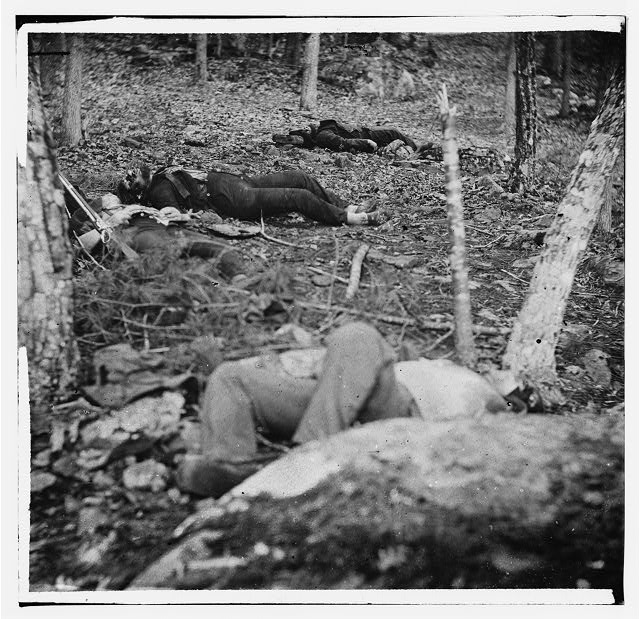
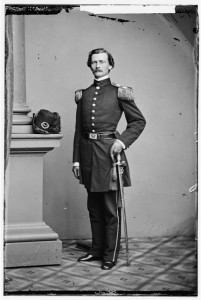
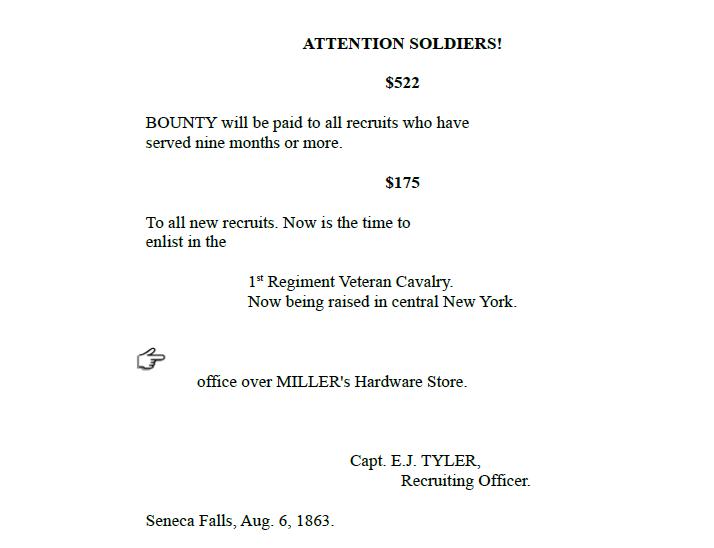
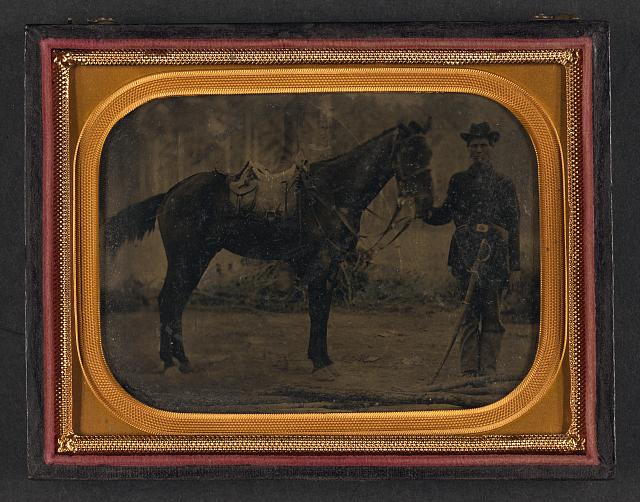
![Oswego, N.Y. (N.Y. : Published by Smith Brothers & Co., [1855]; LOC: LC-DIG-ppmsca-09320)](https://www.bluegrayreview.com/wp-content/uploads/2013/08/09320r-300x210.jpg)
